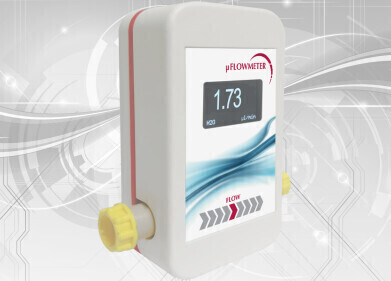LC-MS
Chromatography Explores the Different Stages of Breast Cancer
Feb 14 2020
Cancer Research UK estimate that there are over 360,000 new cancer cases in the UK each year - almost 1000 new cases every day. Over half of those new cancer cases are due to bowel, prostate, lung or breast cancer. Breast cancer is the most common cancer in the UK accounting for almost 15% of new cancers with over 54,000 new cases each year.
But as with other types of cancer - the earlier breast cancer is diagnosed the better the prognosis. One method that might offer scope for an early diagnosis is proteomics - the large-scale study of proteins. A recent paper - Comparative proteomic analysis of different stages of breast cancer tissues using ultra high performance liquid chromatography tandem mass spectrometer - published online on PLoSONE discusses how using proteomics could provide clues to new biomarkers in carcinogenesis.
Stages of a disease
Like other diseases, cancer patients have a better prognosis when the disease is diagnosed early. Cancer UK state that when diagnosed at its earliest stage, 100% of people with breast cancer will survive for one year or more compared with 66% of people diagnosed at the latest stage. The survival rates for five years also show the beneficial effects of an earlier diagnosis. There are several ways that cancers can be described - one of the commonest for breast cancer is to use stages 1 thru 4.
- The earliest stage. A small tumour is found in the breast or lymph nodes close to the breast.
- Tumour size is between 2-5 cm and there are cancer cells in the lymph nodes or a tumour of 5cm that hasn’t spread to the lymph nodes
- Also known as locally advanced breast cancer. The cancer has spread to the lymph nodes or to the skin of the breast or chest wall.
- The cancer has spread to other parts of the body. Known as advanced cancer or metastatic breast cancer.
Chromatography identifies the stages
The team behind the study referenced above used proteomic profiling to try and identify cancer biomarkers for early detection of breast cancer. The team examined 80 samples of tumour and matched adjacent normal tissue collected from breast cancer patients. The protein expression profiles were then mapped using gel electrophoresis.
The team analysed the proteins using high performance liquid chromatography-tandem mass spectrometry to identify the proteins present in each sample. The use of chromatography to analyse proteins is discussed in the article, Proteins Under Pressure. The team identified proteins in both stage 2 and stage 3 tumours when compared to the normal controls. They conclude that knowledge of protein expression, especially in stage 2 and stage 3 breast cancer, can provide important clues that may enable the discovery of novel biomarkers in carcinogenesis.
Events
Apr 22 2025 Kintex, South Korea
Analytica Anacon India & IndiaLabExpo
Apr 23 2025 Mumbai, India
Apr 27 2025 Portland, OR, USA
May 11 2025 Vienna, Austria
May 18 2025 Tempe. AZ, USA













